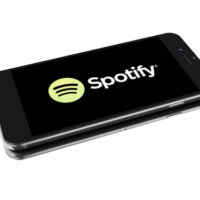Spotify Faces $1.6 Billion Copyright Lawsuit Regarding Music Licenses
 Orange County – The new year is bringing in with it the first significant reform of music licensing rules in decades. Streaming services like Spotify are continuing to gain in popularity as consumer purchase less Compact Discs. Spotify is now facing three lawsuits alleging that it has failed to pay artists for the music it streams.
Orange County – The new year is bringing in with it the first significant reform of music licensing rules in decades. Streaming services like Spotify are continuing to gain in popularity as consumer purchase less Compact Discs. Spotify is now facing three lawsuits alleging that it has failed to pay artists for the music it streams.
Most recently, the Swedish streaming company has to deal with a new larger copyright lawsuit from Wixen Music Publishing. Wixen Music Publishing filed a lawsuit in California federal court that alleges Spotify is using Tom Petty’s “Free Fallin’,” the Doors’ “Light My Fire,” and several thousands of other songs without a license.
The plaintiff is seeking an award for $1.6 billion in damages. The complaint states that, “Spotify brazenly disregards United States Copyright law and has committed willful, ongoing copyright infringement,” and also suggests that twenty-one percent of the 30-million songs on Spotify are perhaps unlicensed.
Spotify was contacted for a request to comment, but has yet to respond. Spotify continues to challenge plaintiff’s authority as to whether Wixen Music Publishing has been authorized by its clients to take action. To defend the lawsuit, Spotify may claim that streaming does not include reproduction nor distribution rights under United States Copyright law.
As a result, USA lawmakers have made a point to begin reforming music licensing. In late December, Rep. Doug Collins (R-Ga.) and Rep. Hakeem Jeffries (D-N.Y.) introduced the Music Modernization Act which would end the “notice of intent” process that’s currently in place.
A database would instead have to publicly identify songs and alleviate the way that digital services struggle to identify and locate co-authors of each of the tens of millions of copyrighted songs. Under the proposal, digital services like Spotify would fund a Mechanical Licensing Collective that would be granted blanket mechanical licenses — the rates would resemble market value giving songwriters and publishers audit rights.
The proposal has earned a buy-in from the Digital Media Association, a trade organization which represents Apple, YouTube, Amazon, and Spotify. However, it may take more than this to get Congress involved since these sorts or issues typically are not high on Congress’ list of todos. The act will only impact copyright holders suing over mechanical reproduction after January 1, 2018.













